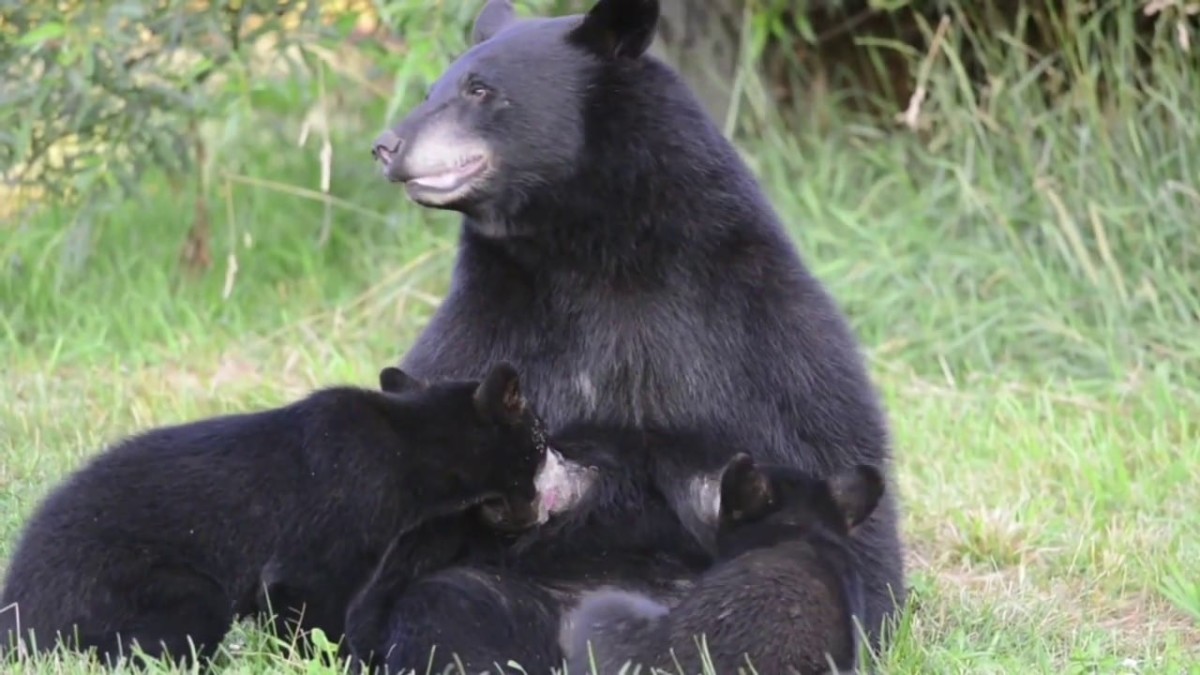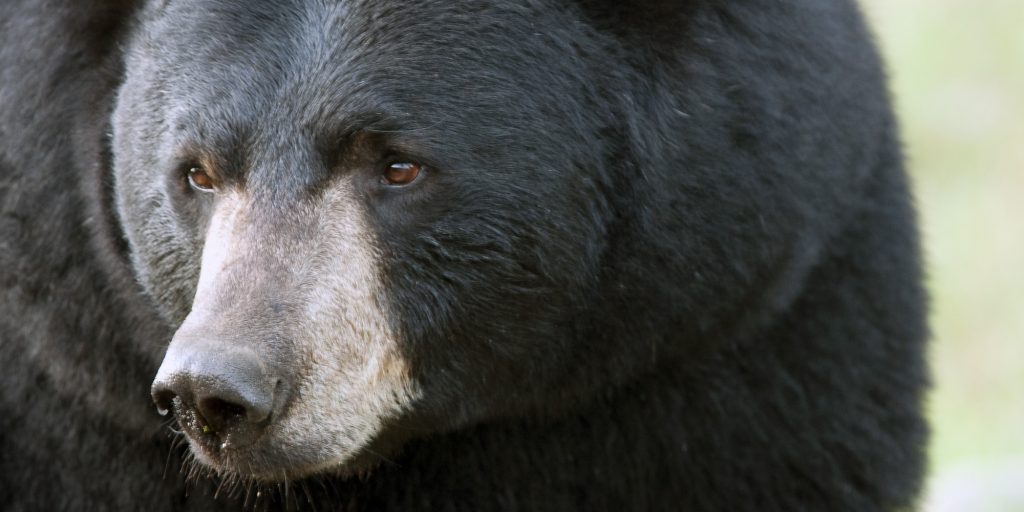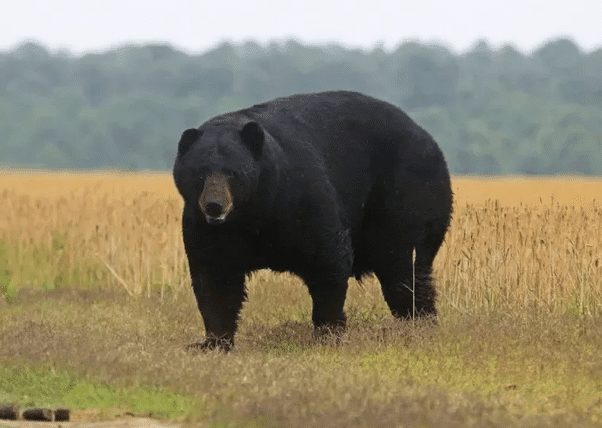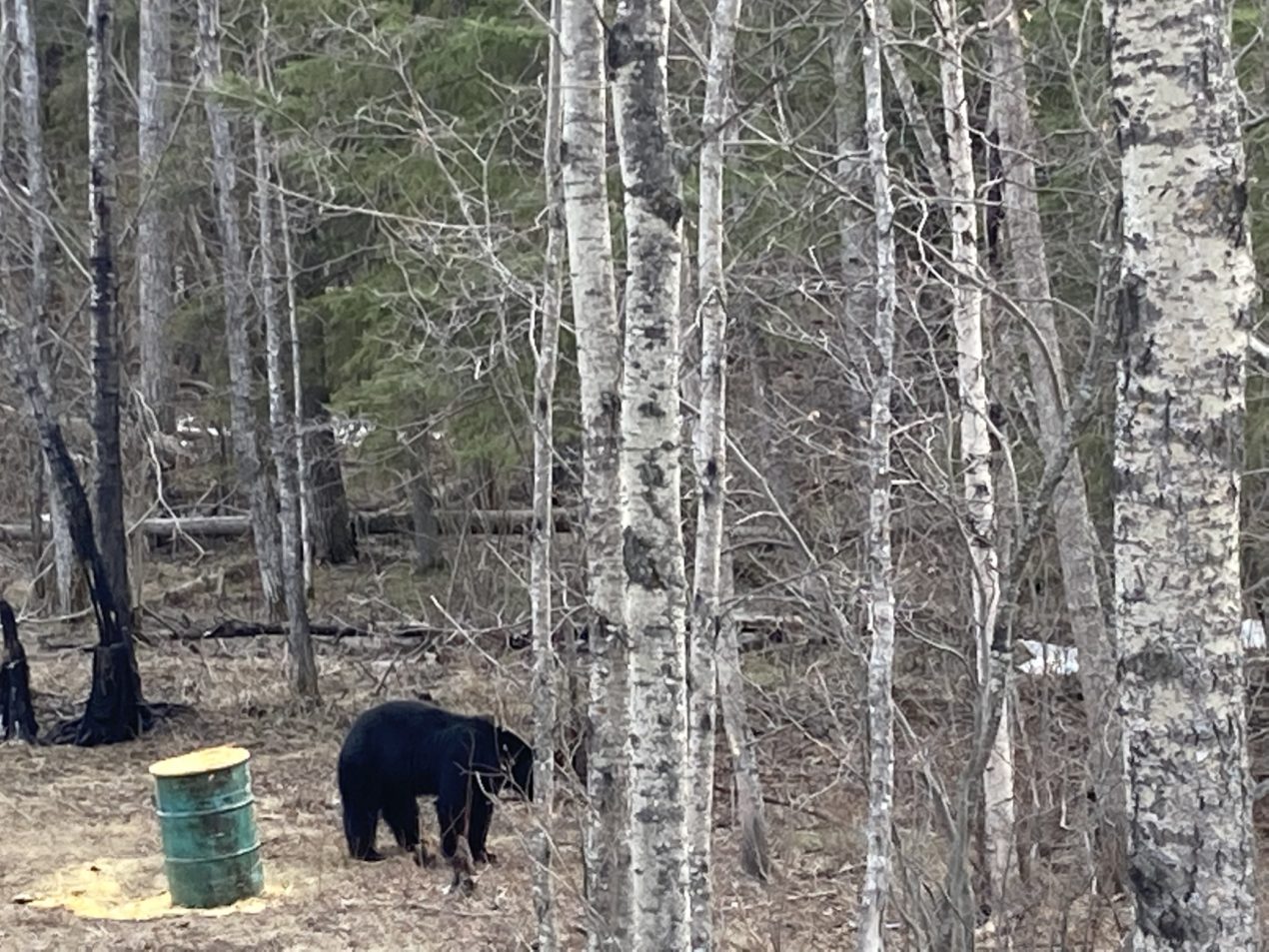Field judging black bears is notoriously difficult. They might just be one of the most difficult species to judge. Not only can it be hard to tell a big one from a little one, but sows and boars look very similar…and sows can get big!
If you’ve ever put yourself in a fast decision, quick draw scenario, then you know what it’s like to sit at a high stakes black bear gambling table. But, with a bit of pre-game day know-how and the help of a few tricks, those all too commonly experienced ground shrinkage issues should be no problem to steer clear of.
Table of Contents
- Field Judging Black Bears
- Hunt an area that consistently produces big boars.
- How to tell the difference between a sow and a boar.
- Look at the head.
- Body Size
- Look at length of legs, chest size and how big the head is in comparison to the body.
- Mature boars will exhibit what appear to be blocky, low to the ground profiles.
- There is nearly no mistaking a big boars, how they move and how they conduct themselves, especially when around other bears. Big is big. Nearly anyone can identify a true giant boar.
- If the neck looks almost as big in front of the shoulder as his body does behind the shoulder, he’s a shooter.
- Big bears move like they are big.
- A great method for field judging black bears is to compare them to the bait barrel.
- Are you interested in booking a bear hunt?
Field Judging Black Bears
- Hunt an area that consistently produces big boars.
- Learn how to know the difference between a sow and a boar.
- Look for a stout neck and a wide head with “small” ears on the sides.
- Look at the size of the body.
- Watch how they move.
- Compare them with the bait barrel.
- Watch for rutting activity.
Hunt an area that consistently produces big boars.
Big bears are very particular about where they live. If you’re not hunting in those areas, you won’t kill a mature boar.
It is the giant super intellectual, predatory boars that keep every hunter daydreaming, and these old un-hunted crankers are our objective and goal. While these specific bears are choosy about a lot of things, much the same as any other big old age class animal, they are firstly very particular about where they live.
These giant boars will hold and defend prime areas.
If you are not in an area that has big bear, and focusses calculated strike effort specifically at them, you may as well have stayed home.

How to tell the difference between a sow and a boar.
The first thing when your field judging black bears is to determine whether it’s a sow or boar. At times this is exceedingly easy when it’s a mature boar, but it can sometimes be difficult to tell difference between a battle hardened old sow and a big boar. Age catches up to us all. Until boars start approaching adult weights at 7-9 years old, it can be very tough to tell them from sows.
When you hunt with an outfitter that targets large, age class boars, and discourages shooting sows will tip the odds in your favor. This management ideology just makes sense. After all, sows are crucial to population dynamics, they are the best big boar bait available.
If a bear has cubs with it, it’s a sow.
In every case where you see a larger sized bear with one or more quite notably smaller and obviously dependent bears, the larger bear is guaranteed to be a sow. However, many sows will have young of the year that they won’t bring with them into a bait site. They’ll stash their cubs in a tree before coming into the bait. Given any opportunity will kill cubs, a mature boar will kill and eat her cubs, so as to bring a sow into estrus cycle.
A dead ringer with sows is the visible presence of nipples.
On wet (nursing) sows with young, the cubs pull out hair around the nipples which can profile them, making them visible, even from broadside, and this can be especially evident on older, larger sows. A good outfitter will set up the bait to give you “angle views” that can really help in obtaining this visual.

Look at the head.
Female black bears have broad heads and narrow muzzles.
Females’ faces are slender and more pointed than males. The smaller the ears look and the farther apart they seem, the better the bear. If you can envision an imaginary upside down triangle on the bear’s head going down to its nose, and all sides are equal, then it’s a mature bear.
A mature boar’s head is quite wide, and will have a thicker, stouter neck.
Boars with some years under their belt will always appear to have smaller ears that are off more to the side of the head than up top. They can show a quite distinct center line crease that runs down their forehead from between their ears. This muscle structure can be quite predominate and noticeable on some big boars.
The smaller the ears look and the farther apart they seem, the better the bear.
If you can envision an imaginary upside down triangle on the bear’s head going down to its nose, and all sides are equal, then it’s a mature bear. A young bear’s head will look big and its ears will look huge and almost touch. Young bears also move at a quick pace and seem skittish and clumsy.

Body Size
Look at length of legs, chest size and how big the head is in comparison to the body.
If his head and ears look small in comparison to his body he’s a giant. If his legs look thick top to bottom, that’s a good sign. A boar’s leg will look as big below the knee as above the knee. A sow’s legs will have a V shape from top to bottom.
Mature boars will exhibit what appear to be blocky, low to the ground profiles.
Watch for bears that are exceptionally wide across the brisket with heavy, wide set front legs. Watch for what appears to be shorter more evenly tipped hair. Big boars do not normally look shaggy with longer ratty looking coats as do younger bear, though belly hair will hang low pronouncing the big belly look. Magnum old sows can exhibit these same profile traits though, so nothing is static. All of these confirmation dynamics are affected by genetics and range factors, and black bears are diverse creatures with individual traits, similar to people in that way.
There is nearly no mistaking a big boars, how they move and how they conduct themselves, especially when around other bears. Big is big. Nearly anyone can identify a true giant boar.
They will rule every roost they roll into. Other bears will openly display caution and fear when they make an appearance at the party. Yes they look just like that discovery channel monster on TV. Really big bears will have a crease down the center of their forehead, and often scars on their faces. A giant boar can also appear so big it looks like he’s dragging his belly when he moves.
If the neck looks almost as big in front of the shoulder as his body does behind the shoulder, he’s a shooter.
That said however, it’s an entirely different issue with a medium to large bear. Field judging black bears of this caliber becomes difficult. Even younger, smaller framed bear often look like they belong in this class without the strong utilization of visual sizing aids.
Big bears move like they are big.
Large bears also move slowly, swaying side to side with a big belly and an air of confidence about them.
They can display indecisiveness, but all animals including people take pause when thinking and processing info, however, they will not be the bear that gets jumpy at every sound out there. If a bear comes in and has all other bears clear and undivided attention, promoting rapid submission or displays of fear, it will be a boar.
The body language of a non-submissive large male in any specie is a rapid telltale of dominance, and such intolerant mannerism is as well the case with dominant big boars.
If you see ripped up ears and/or heavy facial fight scarring on a big bear, do not waste any more time looking, it is show time. If you see a larger profile bear moving and trailing a smaller bear into the bait site, take the time to be sure, but it is virtually guaranteed to be a boar following a hot sow in.

A great method for field judging black bears is to compare them to the bait barrel.
If a bear is as tall as a barrel standing on its end, shoot!
Bait barrels are a great tool to use in size determination. In addition, it really helps to cut logs at each bait site that are 5 feet in length. If a bear meets/exceeds the length of these on the ground, it will likely be a shooter.
To aide in sex identification, strategically placed tree mounted “candy” jars provide a standing, unobstructed belly view.
Hopefully this overview can help a bit with this notorious subject of field judging black bears.
Big black bears can be a challenge to successfully square off with, but so long as moves are calculated, one nearly cannot go wrong. The hope is for giant net book 21 inch boars to be the first bear to walk in on everyone out there, but until that happens, keep looking those bear over and have fun!
Are you interested in booking a bear hunt?
Ask For Pricing or More Information
Here are some hunts that you might like:
Ask Us About a Hunt Request pricing and availability








































